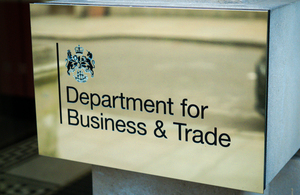The 202 employers were found to have failed to pay their workers almost £5 million in a clear breach of National Minimum Wage (NMW) law, leaving around 63,000 workers out of pocket.
Companies being named today range from major high street brands to small businesses and sole traders, in a clear message from government that no employer is exempt from paying their workers the statutory minimum wage.
Minister for Enterprise, Markets and Small Business Kevin Hollinrake said:
Paying the legal minimum wage is non-negotiable and all businesses, whatever their size, should know better than to short-change hard-working staff.
Most businesses do the right thing and look after their employees, but we’re sending a clear message to the minority who ignore the law: pay your staff properly or you’ll face the consequences.
The businesses named in today’s list have since paid back what they owe to their staff and have also faced financial penalties. The investigations by His Majesty’s Revenue and Customs concluded between 2017 and 2019.
The employers named today previously underpaid workers in the following ways:
- 39% of employers deducted pay from workers’ wages.
- 39% of employers failed to pay workers correctly for their working time.
- 21% of employers paid the incorrect apprenticeship rate.
Whilst not all minimum wage underpayments are intentional, there is no excuse for underpaying workers.
Guidance for employers on pay is available on GOV.UK, and today the government has published additional advice about breaches and the steps employers should take to make sure they pay their workers correctly.
Bryan Sanderson Chair of the Low Pay Commission said:
The minimum wage acts as a guarantee to ensure all workers without exception receive a decent minimum standard of pay. Where employers break the law, they not only do a disservice to their staff but also undermine fair competition between businesses.
Regular naming rounds should be a useful tool in raising awareness of underpayment and helping to protect minimum wage workers.
The government has been clear that anyone entitled to be paid the minimum wage should receive it, and that robust enforcement action will be taken against employers who do not pay their staff correctly.
Since 2015, the budget for minimum wage enforcement has doubled with the government having ordered employers to repay over £100 million to 1 million workers.
The government is determined to ensure workers are paid for their hard work, having increased the National Living Wage by a record amount in April 2023. This led to the lowest paid workers in the UK seeing a rise of 9.7%, keeping the government on track to achieve its manifesto commitment for the National Living Wage to equal two-thirds of median earnings by 2024, provided economic conditions allow.

















